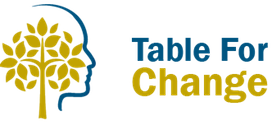Public health is an invaluable sector that focuses on improving the health and well-being of communities and populations at large. As we advance into the 21st century, the importance of public health awareness becomes increasingly clear. An informed population can actively contribute to its own well-being and the health of others, driving societal progress forward. In this article, we will delve into ten key reasons why public health awareness is of paramount importance in today’s world.
The Role of Public Health Awareness in Disease Prevention
Public health awareness plays a critical role in the prevention of diseases. Knowledge about various illnesses, their symptoms, transmission methods, and prevention strategies empowers individuals to protect themselves and others. For instance, understanding the importance of hand hygiene can significantly reduce the spread of infectious diseases.
Moreover, public health awareness initiatives can demystify complex health concepts, making them accessible and understandable to the general population. By translating scientific jargon into layman’s terms, these initiatives ensure that everyone, regardless of their educational background, has the necessary knowledge to maintain their health and prevent diseases.
The Importance of Education in Public Health
Effective public health promotion depends on the foundation formed by education. By providing individuals with the knowledge and skills they need, education empowers them to take control of their health and contribute positively to community health. Health education aims to equip individuals with the tools they need to manage their health and prevent diseases.
Degrees like a Master of Public Health (MPH) can benefit professionals by helping them gain a deeper understanding of public health and acquire the necessary skills to promote awareness and lead effective health programs. Now, with MPH online programs available, professionals have the added advantage of balancing their work commitments while earning this degree – which makes it a practical option for those looking to make a bigger impact in the field of public health.
The Power of Informed Choices
The impact of a public health-conscious society cannot be understated. A key part of this consciousness lies in our everyday decisions. Unhealthy eating habits, a sedentary lifestyle, and tobacco consumption are major contributors to chronic conditions like heart disease, diabetes, and cancer.
Health literacy campaigns are indispensable for highlighting the long-term repercussions of these lifestyle decisions. They spell out the advantages of balanced nutrition, regular exercise, and quitting smoking, nudging individuals towards healthier habits. These campaigns are also treasure troves of practical tips and resources, making the transition to a healthier lifestyle more achievable.
Shining a Light on Health Inequalities
Health inequalities, which manifest as stark differences in health status or healthcare access across population groups, remain a pressing issue in public health. Public health literacy is the key to illuminating these disparities and sparking action to rectify them.
This literacy helps us understand the social determinants of health, such as income, education, and living conditions that underlie these disparities. This understanding can inform the strategies of policymakers, health professionals, and community leaders to address these disparities, fostering healthcare equity.
Encouraging Vaccination
Public health consciousness has a profound role in bolstering vaccination rates. Vaccines have proven their worth in managing and sometimes even eradicating numerous infectious diseases. However, vaccine hesitancy and misinformation remain significant hurdles.
Awareness drives can help dispel the myths surrounding vaccines and emphasize their safety and effectiveness. They also provide crucial information on vaccination schedules and centers, promoting immunization efforts.
Enhancing Emergency Preparedness
In an era marked by global pandemics and natural disasters, public health awareness is indispensable for emergency preparedness. Awareness initiatives can provide critical information on how to prepare for and respond to various health emergencies, enhancing community resilience.
For example, during the COVID-19 pandemic, public health awareness efforts played a vital role in educating the public about the virus, prevention measures, and what to do if one gets infected. This information helped communities navigate the crisis and mitigate its impact.
Breaking the Silence on Mental Health
Despite its significance, mental health often falls by the wayside in public health discourse. Public health literacy can dismantle the stigma around mental health issues and promote mental health services.
These campaigns can enlighten the public about various mental health conditions, their signs, and symptoms, promoting early intervention and treatment. They also provide information on resources and services, improving access to mental health care.
Impact on Health Policy and Legislation
Public health awareness can significantly influence health policy and legislation. An informed public can advocate for health and well-being policies, influencing lawmakers’ decisions. For example, public awareness of the dangers of tobacco use has led to policies restricting tobacco advertising, increasing taxes on tobacco products, and implementing smoke-free laws.
Furthermore, public health awareness can drive the implementation of health-promoting policies in non-health sectors, such as education, housing, and transportation. These policies can create environments that support healthy behaviors and contribute to the overall health of communities.
Role in Environmental Health
Public health awareness extends beyond individual health behaviors and diseases, including broader issues like environmental health. Our surroundings – the air we breathe, the water we drink, and the conditions we live and work – significantly impact our health.
Public health awareness can educate individuals about environmental health risks, such as air and water pollution, exposure to harmful chemicals, and climate change. Armed with this knowledge, individuals and communities can take action to protect their environment and, consequently, their health.
Encouraging Participation in Health Research
Health research is the cornerstone for understanding diseases and discovering effective treatments. However, the success of health research hinges on the participation of individuals in clinical trials or data provision.
Public health literacy can foster an understanding of the importance and benefits of health research, prompting more individuals to participate. This participation can expedite health research, bringing us a step closer to finding solutions to pressing health problems.
Conclusion
To sum up, public health literacy is an integral part of a flourishing society. It equips individuals to take control of their health, fosters healthy behaviors, and shapes policy and decision-making. As we grapple with the intricacies of the 21st century, bolstering public health literacy should be a top priority in our efforts to improve health and well-being. By disseminating the knowledge we acquire, we can contribute to a healthier and more informed society.


















